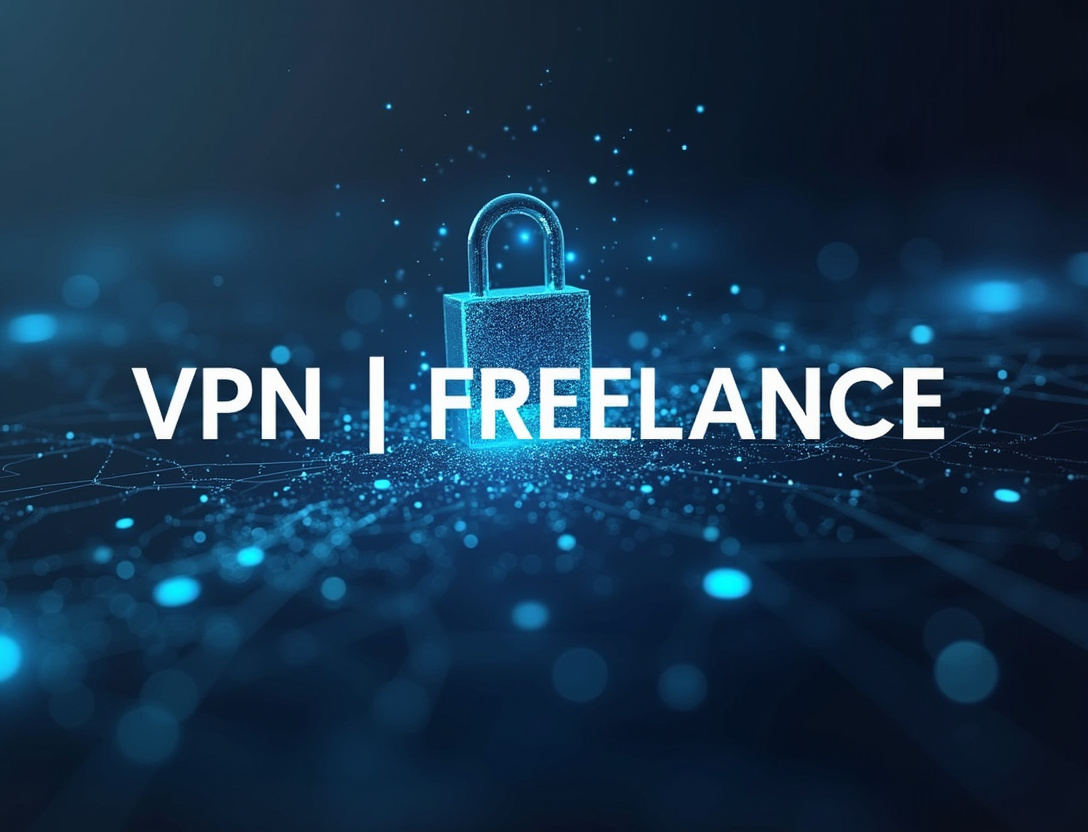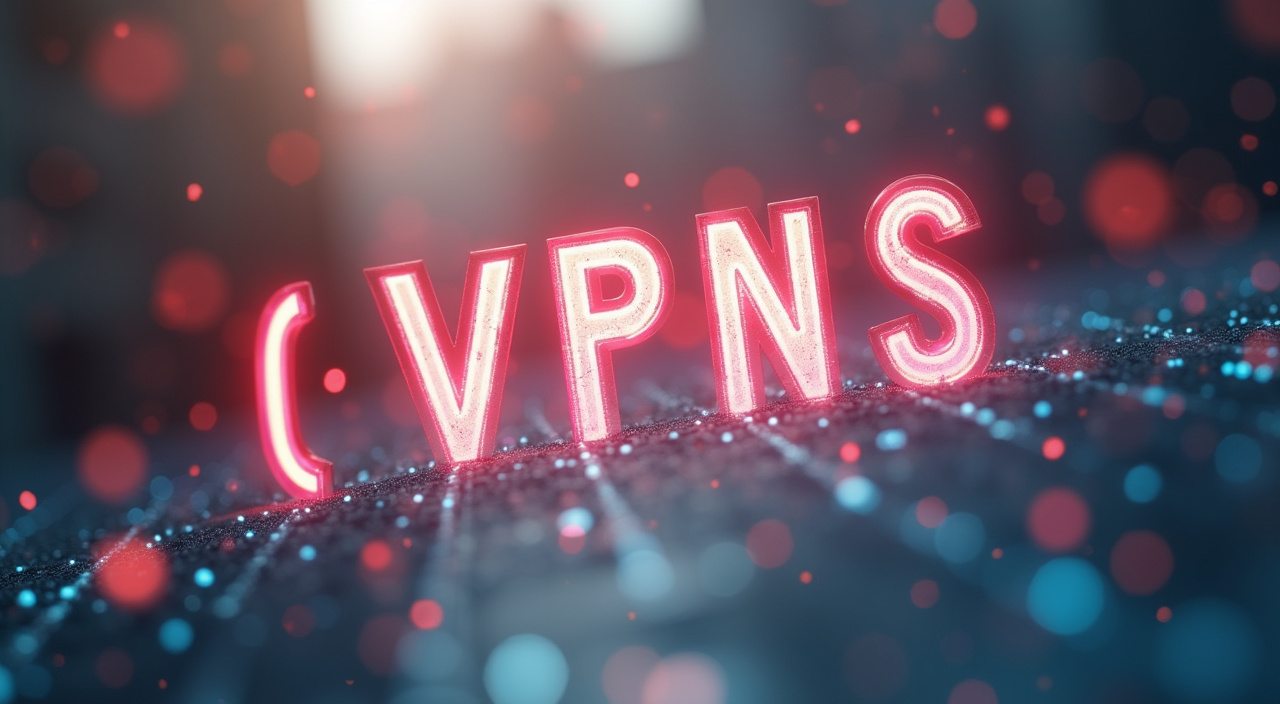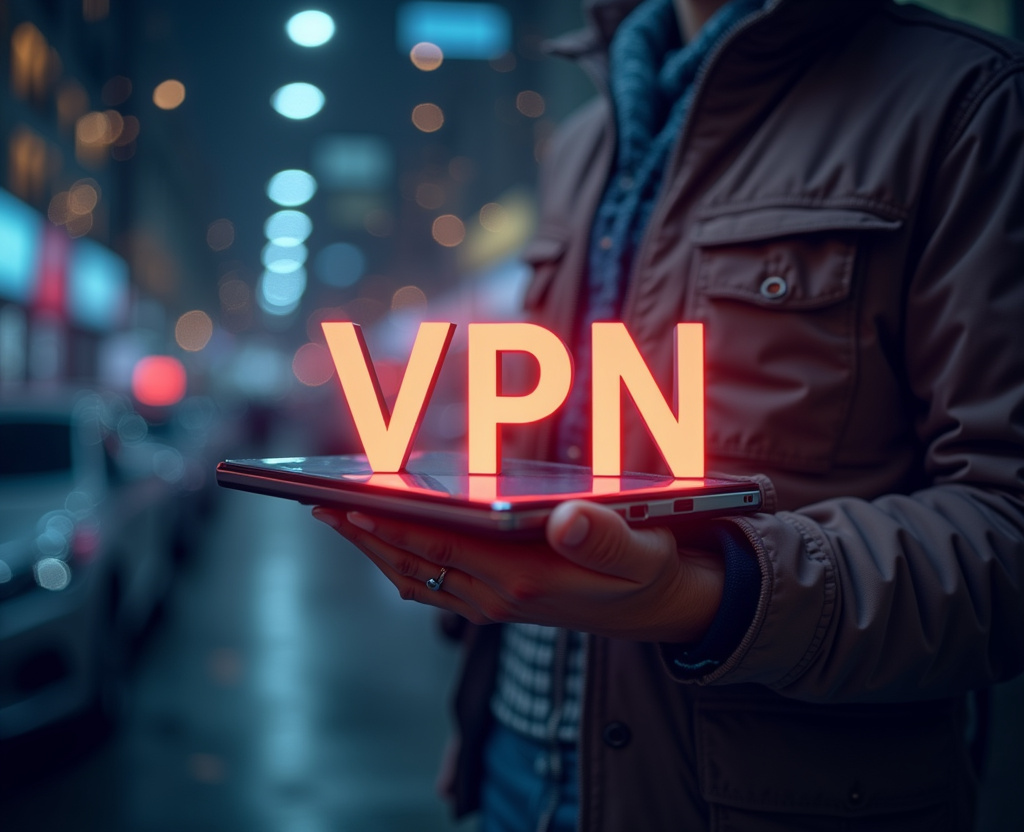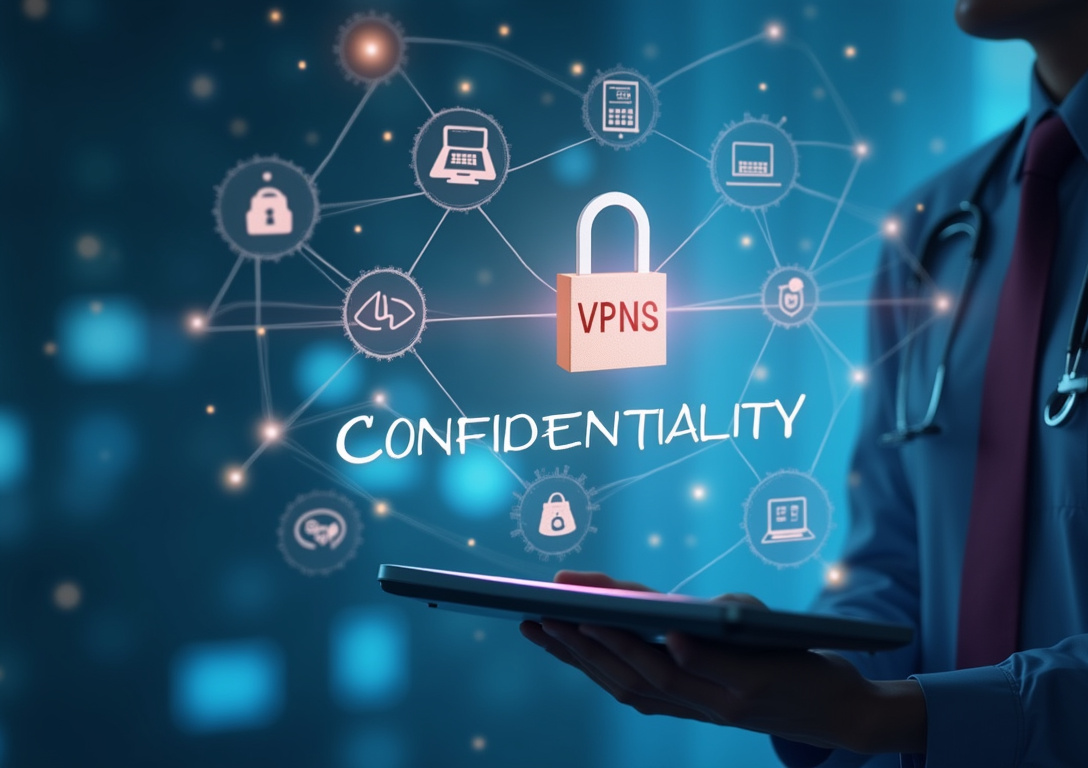Exploring VPN Features That Matter Most
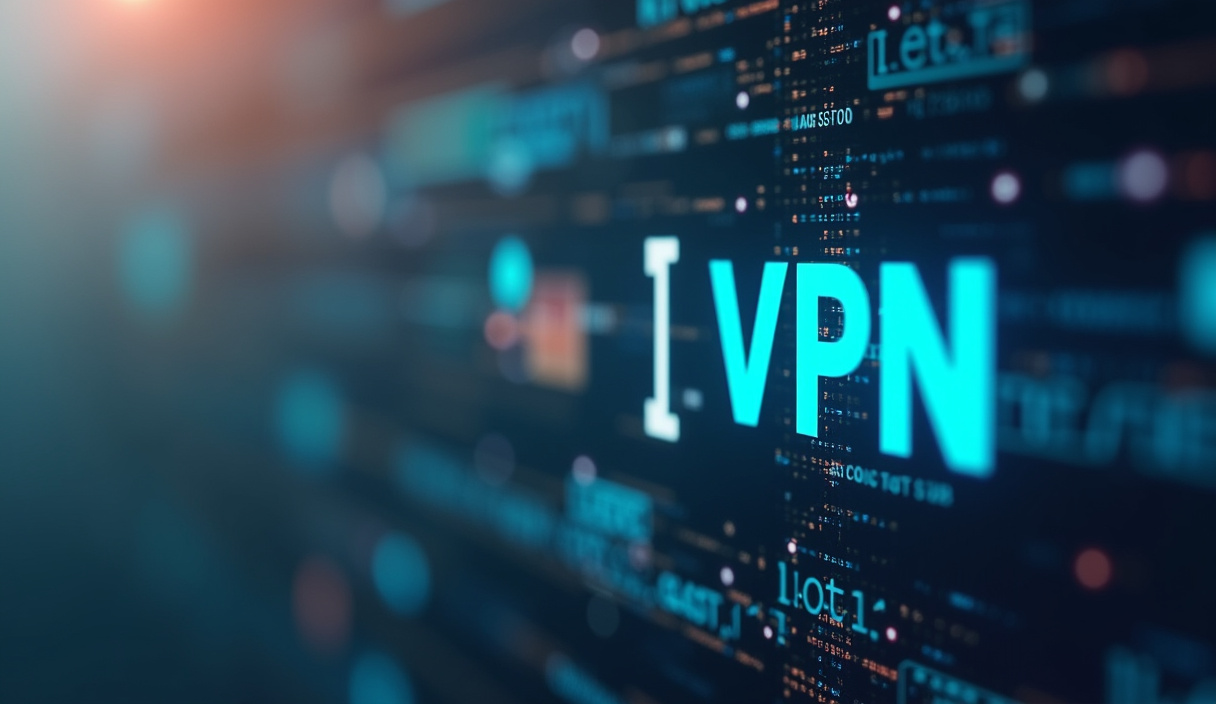
Table of Contents
VPNs in Digital Security: An Introduction
In today's interconnected world, the importance of online privacy and security cannot be overstated. As we increasingly conduct our lives online, from banking and shopping to communication and entertainment, we leave behind a digital trail that can be tracked, monitored, and potentially exploited. Virtual Private Networks (VPNs) have emerged as essential tools for safeguarding our online activities, providing a secure and encrypted connection that shields our data from prying eyes.
A VPN acts like a protective tunnel, masking your real IP address and routing your internet traffic through a remote server, making it significantly more difficult for third parties to monitor your online behavior or intercept your sensitive information. However, the VPN landscape is vast and complex, with a myriad of providers offering an array of features and promises. Choosing the right VPN can feel overwhelming, especially for those unfamiliar with the technical jargon and nuances of online security.
This article aims to demystify the world of VPNs by exploring the essential VPN features that truly matter, providing you with the knowledge to make informed decisions and select a service that aligns perfectly with your specific needs and online activities. The proliferation of VPN services reflects a growing awareness of the risks associated with unprotected internet use. From government surveillance and corporate tracking to malicious hackers and identity thieves, the threats to our online privacy are real and ever-present.
A VPN can mitigate these risks by encrypting your data, preventing your ISP from monitoring your browsing history, and allowing you to bypass geographical restrictions to access content from around the world. However, not all VPNs are created equal. Some VPNs may offer weak encryption, log your browsing activity, or even inject malware into your device.
Therefore, it is crucial to carefully evaluate the various VPN features and choose a provider with a proven track record of security and reliability. Understanding and prioritizing these features is crucial for ensuring a secure, private, and seamless online experience. The sheer volume of options necessitates a discerning approach to VPN comparison, focusing on those elements that directly impact your security, speed, and overall user experience.
This exploration will empower you to separate hype from substance, enabling you to make a well-informed choice when choosing VPN. When evaluating VPN features, it's important to consider your specific online activities and the level of security you require. Are you primarily concerned with protecting your privacy while browsing the web, or do you need a VPN for more demanding tasks such as streaming, torrenting, or gaming?
Do you travel frequently and need a VPN to secure your connection on public Wi-Fi networks? Your answers to these questions will help you prioritize the VPN features that are most important to you. Ultimately, the right VPN will not only protect your data but also enhance your online freedom and accessibility.
Consider your online habits, the devices you use, and the level of security you require to narrow down your choices and pinpoint the VPN that best suits your lifestyle.
The foundation of any reliable VPN lies in its security protocols and encryption standards. These elements determine the strength of the protection afforded to your data as it traverses the internet. Think of the security protocol as the blueprint for how your data is packaged and sent, while the encryption standard is the lock that keeps it confidential.
A weak protocol or outdated encryption can render your VPN virtually useless, leaving your data vulnerable to interception and decryption. Therefore, understanding these technical aspects is paramount when choosing VPN. OpenVPN is widely recognized as the gold standard for VPN security protocols.
Its open-source nature allows for constant scrutiny and improvement by the cybersecurity community, ensuring that any vulnerabilities are quickly identified and patched. OpenVPN employs strong encryption algorithms and supports a wide range of configurations, making it a versatile and highly secure option. IKEv2/IPsec is another reputable protocol, particularly well-suited for mobile devices.
It offers a good balance of speed and security and is known for its ability to quickly re-establish connections after interruptions, such as switching between Wi-Fi and cellular networks. WireGuard is a relative newcomer to the scene, but it has quickly gained popularity due to its speed, efficiency, and modern cryptography. WireGuard is designed to be lightweight and easy to implement, making it an attractive option for VPN providers looking to optimize performance.
However, not all protocols are created equal. PPTP (Point-to-Point Tunneling Protocol) is an older protocol that is now considered obsolete due to its known security vulnerabilities. L2TP/IPsec is also less secure than OpenVPN or IKEv2/IPsec and should be avoided if possible.
When evaluating VPN features, always prioritize those that utilize OpenVPN, IKEv2/IPsec, or WireGuard protocols. Closely related to the security protocol is the encryption standard used. AES (Advanced Encryption Standard) with a 256-bit key is the industry benchmark for strong encryption.
AES-256 is virtually unbreakable, even with the most powerful computers, making it an ideal choice for protecting sensitive data. Ensure that the VPN you choose utilizes AES-256 encryption or a comparable strong encryption algorithm, such as ChaCha20. Beyond the protocol and encryption, a crucial VPN feature is the kill switch.
This acts as a fail-safe mechanism, automatically severing your internet connection if the VPN connection unexpectedly drops. This prevents your IP address and data from being exposed if the VPN malfunctions or disconnects, offering a vital layer of protection, especially when using public Wi-Fi or engaging in sensitive online activities. Imagine downloading a torrent and your VPN connection drops; without a kill switch, your real IP address would be exposed to the torrent swarm.
Finally, one of the most important factors to consider when choosing VPN is the provider’s logging policy. A strict no-logs policy is paramount for ensuring your privacy. This means the VPN provider does not collect or store any information about your online activity, including browsing history, IP addresses, connection timestamps, or data transferred.
A VPN is only as good as its word when it comes to logging, so carefully review the privacy policy to understand what data, if any, is collected and how it is used. Look for VPNs that have undergone independent audits from reputable third-party cybersecurity firms to verify their no-logs claims. These audits provide an extra layer of assurance that the VPN provider is adhering to its stated privacy policy.
When conducting a VPN comparison, prioritize those services that have a proven commitment to user privacy and have taken concrete steps to demonstrate their adherence to a no-logs policy.
Choosing a Trustworthy VPN Provider and Configuration
Alongside robust security measures, a VPN's server infrastructure and performance are paramount to its overall utility. The number of servers, their geographical distribution, and the speed and stability of those servers directly impact your ability to access content, bypass geo-restrictions, and maintain a seamless online experience. A limited server network can lead to congestion, slower speeds, and fewer options for spoofing your location.
Conversely, a vast and strategically located server network provides greater flexibility, improved performance, and enhanced access to global content. The number and location of servers are vital VPN features to consider. A VPN with servers in numerous countries allows you to bypass geographical restrictions and access region-locked content, such as streaming services, news websites, or social media platforms.
For example, if you want to watch a TV show that is only available in the United States, you can connect to a VPN server in the US to obtain a US IP address and bypass the geo-restriction. Furthermore, a wider server network typically translates to better speeds. When you connect to a VPN server that is located closer to your physical location, the data has to travel a shorter distance, resulting in faster speeds and lower latency.
Conversely, connecting to a server that is located far away can significantly slow down your internet connection. Therefore, it is important to choose a VPN with servers located in regions that are relevant to your online activities. However, the number of servers is not the only factor to consider; the quality and capacity of those servers are equally important.
A VPN provider may boast a large number of servers, but if those servers are overloaded or under-resourced, you will still experience slow speeds and unreliable connections. Server speed is paramount for ensuring a seamless online experience. Slow VPN speeds can lead to buffering, lag, and frustration, especially when streaming video, playing online games, or downloading large files.
Test the speeds of different VPN servers to determine which ones offer the best performance for your location and internet connection. Consider using online VPN speed testing tools to compare the speeds of different VPN providers and servers. These tools typically measure download speed, upload speed, and latency (ping time).
Lower latency is particularly important for online gaming, as it minimizes the delay between your actions and the server's response. Server stability is equally important. A reliable VPN should offer consistent and stable connections, minimizing the risk of dropped connections or interruptions.
Frequent disconnects can be disruptive and expose your IP address, negating the benefits of using a VPN. Read reviews and check user feedback to gauge the reliability of a VPN's server infrastructure. Look for VPNs that have a reputation for providing stable connections and minimal downtime.
In addition to general-purpose servers, some VPNs offer specialized servers optimized for specific online activities. These specialized servers may offer improved performance and security for those particular use cases. Streaming-optimized servers, for example, are designed to bypass VPN detection mechanisms used by streaming services like Netflix, Hulu, and BBC iPlayer.
These servers often utilize advanced techniques to mask VPN traffic and prevent streaming services from blocking access. Torrenting-optimized servers, on the other hand, are configured to allow P2P file sharing and may offer enhanced security and anonymity for torrenting activities. Finally, when VPN comparison, one of the important criteria is the ability to bypass geo-restrictions.
Many streaming services and websites restrict access based on your location. A good VPN should be able to effectively mask your IP address.
VPNs for Services: Enhancing Security and Privacy on Online Platforms
The practical application of a VPN hinges significantly on its usability and compatibility across various devices and platforms. A VPN boasting top-tier security and blazing-fast speeds remains impractical if its interface is convoluted, its installation process cumbersome, or its compatibility limited. The ideal VPN seamlessly integrates into your digital life, providing robust protection without demanding undue technical expertise or restricting your device choices.
A VPN should be easy to install, configure, and use, even for users with limited technical expertise. Imagine trying to navigate a complex installation process or decipher cryptic settings menus; the frustration alone could deter users from fully utilizing the VPN's potential. Look for VPNs that offer intuitive apps for all major operating systems, including Windows, macOS, Android, and iOS.
These apps should provide a user-friendly interface that allows you to quickly connect to a server, adjust settings, and access support resources. The user interface should be clean, uncluttered, and easy to navigate, presenting essential information in a clear and concise manner. For example, the app should display your current IP address, the server location you are connected to, and the status of the VPN connection.
Settings should be logically organized and easily accessible, allowing you to customize the VPN's behavior to suit your specific needs. Compatibility with various devices is another crucial factor. In today's multi-device world, it's essential to choose a VPN that is compatible with all of your devices, including your computer, smartphone, tablet, and router.
Some VPNs offer dedicated apps for specific devices, while others may require manual configuration. Dedicated apps typically provide a more seamless and optimized experience, while manual configuration may be necessary for devices that do not have native VPN support. Router compatibility is particularly important if you want to protect all of the devices on your home network.
By installing a VPN on your router, you can encrypt all of your internet traffic and protect your privacy without having to install VPN apps on each individual device. This is especially useful for devices that do not have native VPN support, such as smart TVs, gaming consoles, and IoT devices. Many VPN providers offer detailed instructions and support for setting up their VPN on various routers.
Some even offer pre-configured routers with their VPN software already installed. However, router installation can be technically challenging, so it's important to choose a VPN provider that offers excellent support and documentation. In some cases, certain essential VPN features might only be accessible or configurable through the desktop application, making mobile device management slightly less feature-rich.
Examine the functionality of each app version across your devices; you may find certain features are prioritized for a specific operating system. Beyond apps and device compatibility, consider the VPN's ease of setup and deployment. A streamlined setup process helps users quickly establish secure VPN connections without struggling through technical roadblocks.
Many services now feature one-click installations. The speed and ease to switch between geographical servers can significantly impact the overall experience. In brief VPN comparison, a simplified, user-friendly initial setup and server selection mechanism translates into greater ease of use.
Furthermore, the best providers provide exceptional and accessible support. Evaluate the resources offered by the company, like tutorials and FAQs as an additional step in choosing VPN. Efficient customer service channels and response times often separate an exceptional VPN provider from a merely adequate offering.
Comprehensive guides, detailed video installations, and responsive help can mitigate some of the inevitable snags many users experience when first engaging with VPN software.
The Future of VPNs: Innovations for Enhanced Security and User Experience
Beyond the core features of security, performance, and usability, several supplementary VPN features can further enhance your online experience and provide added value. These features may not be essential for all users, but they can be particularly beneficial depending on your specific needs and online activities. One such feature is split tunneling, which allows you to route some of your internet traffic through the VPN while allowing other traffic to bypass it.
This can be useful if you want to protect sensitive data while still accessing local services or websites that may not work properly with a VPN. For example, you could use split tunneling to route your banking traffic through the VPN while allowing your streaming traffic to bypass it, potentially improving streaming speeds and reducing buffering. Some VPNs allow you to customize which apps and websites use the VPN connection and which ones bypass it.
Another valuable feature is ad and malware blocking. Many VPN providers offer built-in ad blockers and malware protection, which can help to improve your browsing experience and protect you from online threats. Ad blockers prevent annoying ads from cluttering your web pages, while malware protection helps to prevent you from accidentally downloading malicious software.
These features can be particularly useful on mobile devices, where screen space is limited and malware threats are more prevalent. Some VPNs also offer protection against phishing attacks, which attempt to trick you into giving away your personal information. These features can add an extra layer of security and protect you from falling victim to online scams.
Furthermore, consider the availability of multi-hop connections, also known as double VPN. This feature routes your traffic through two separate VPN servers, adding an extra layer of encryption and anonymity. While this can slow down your connection speed, it can be useful for users who require the highest level of security and privacy.
Port forwarding can also be a beneficial VPN features for certain activities, such as torrenting or hosting online games. Port forwarding allows you to bypass firewalls and connect directly to other users, which can improve download speeds and reduce lag. However, port forwarding can also increase your security risk, so it's important to use it with caution.
Another aspect to consider is the number of simultaneous connections allowed by the VPN provider. If you have multiple devices that you want to protect, you'll need a VPN that allows you to connect them all at the same time. Some VPN providers offer unlimited simultaneous connections, while others limit the number of connections to a certain number, such as five or ten.
Finally, consider the cost of the VPN subscription. VPN prices can vary widely, so shop around and compare the prices of different providers. Keep in mind that the cheapest VPN is not always the best option.
Consider the VPN features offered and choose a provider that offers a good balance of price and performance. Look for VPNs that offer free trials or money-back guarantees, so you can test the service before committing to a long-term subscription. Furthermore, when choosing VPN, carefully consider the payment options available.
Some VPN providers accept anonymous payment methods, such as cryptocurrencies, which can further enhance your privacy. In conclusion, choosing the right VPN requires careful consideration of your specific needs and online activities. By understanding the essential VPN features and carefully evaluating the various providers, you can select a VPN that provides robust security, excellent performance, and a seamless user experience.
Don't be afraid to test out different VPNs before committing to a long-term subscription. By taking the time to do your research, you can find the perfect VPN to protect your online privacy and security.
Stay Updated
Get the latest VPN news, tips, and exclusive deals to your inbox.
